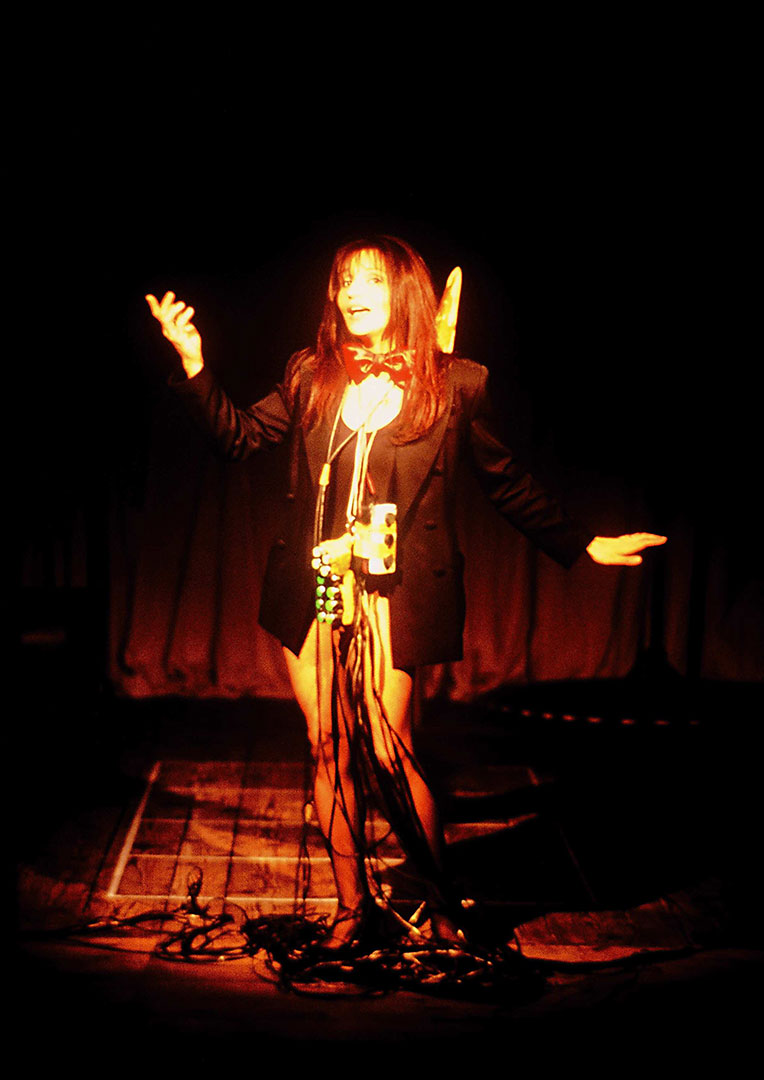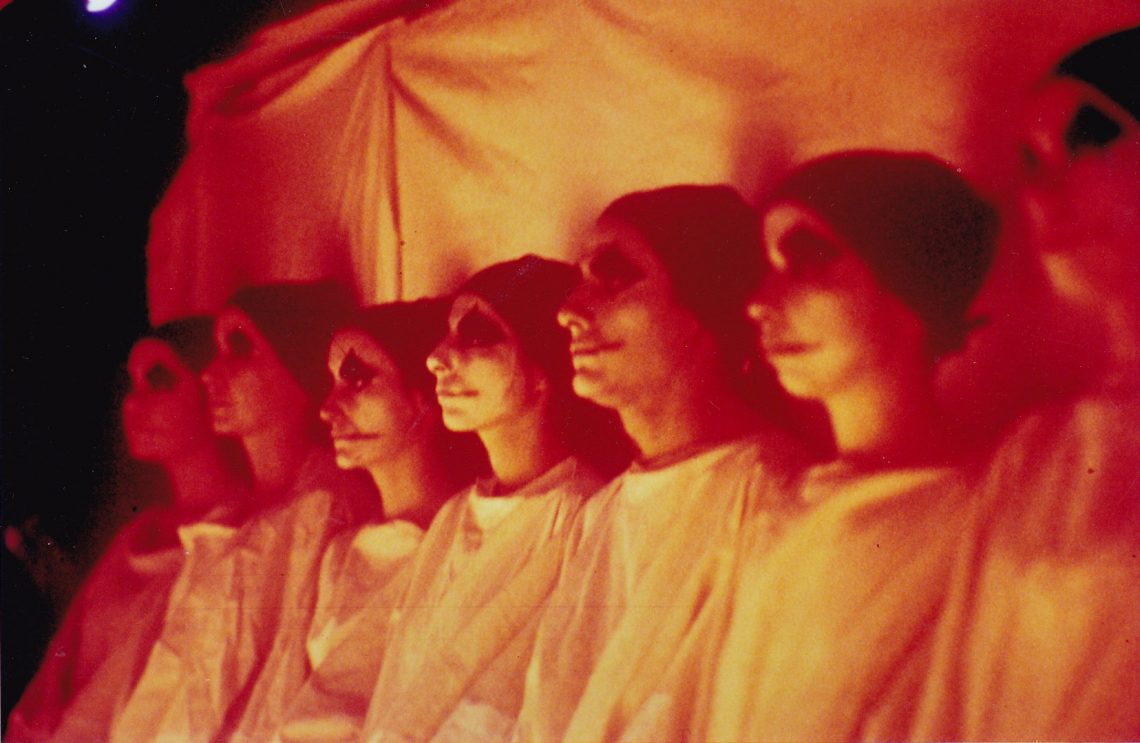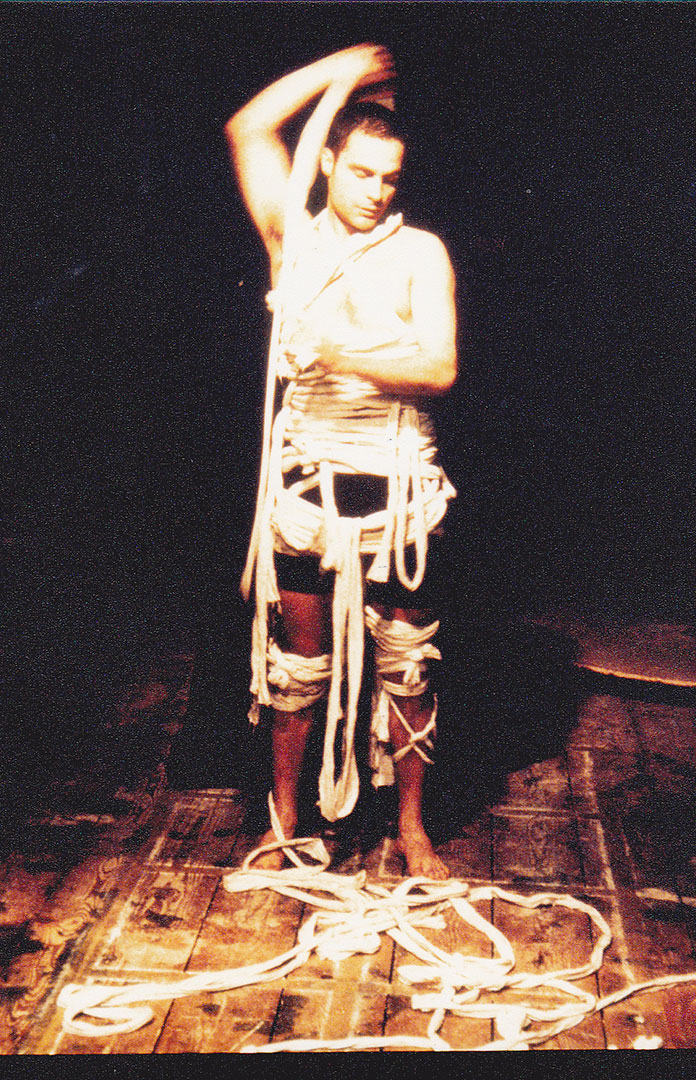The stage, the play area will be definitely separated by a curtain or stage lights from the area of the spectators exists in order to express the traditional stage concept.
On the stage a system, where stage/ acting space/ layers of life simultaneously exist.
At the back of the stage a kind of an antique chorus, which opens and ends the play, which determines its course and which symbolizes and embodies authority.
The acting area and smaller playing spaces defined by the playing equipment (a cylinder you can walk on, a wheel you can run on, etc.) determine the same hierarchic spaces of existence in life.
In front of the proscenium arch is a narrator who starts and ends the play according to the commands of the chorus and manipulates each episode in the play.
The play proceeds in an order where the main action of the players is to keep on moving on the stage, and as mentioned above, they move on special equipment which reminds one of children’s plays or circus shows. While doing this, the players compete to be deemed “successful” by the chorus and get the reward which is a rhinoceros horn attached to their back.
The episodes are played out with a kind of acting stripped from what is called literary. The acting in the episodes is physically confined to each actor’s play area. The acting in the episodes require a high capacity for physical endurance like that expected of a sportsman or an athlete. After each episode the chorus judges the player in terms whether he/she is “sufficient” or not. The judgement will be the actual result of the performance at hand. Therefore the actor (player) will carry a double risk; as the actor him- or herself and as the “actor” defined by his role.
The risks on the stage will be totally real and identical with those in life.
The moving action on the stage is important. All the actors keep on moving in their acting spaces but get nowhere. The acting in the episodes is physically confined to each actor’s play area. In this way, during the play the stage/ the play area/ the race to win will gain a simultaneous and synonymous reality.
The stage becomes a simulation chamber.
The text was created by using some inserts from E. Ionesco’s The Rhinoceros, The Grand Larousse, S. Beckett’s Endgame, Encyclopaedia of Animals, Thourlby’s The Ways of Being Successful and Powerful, etc. The text pieces together scientific knowledge, rumours, superstitions as information of equal value. These ready-written materials were directly used or quoted with no indication of source, and at times their originality was distorted. The manner of quoting these authors or texts is in the manner of “stealing (!) their words”.
By getting together the antique chorus, “performative” style of acting, epic narrator, the original text and inserts taken from the other texts in an eclectic manner, a style is created which defies the modern tradition.
In the play, areas of authority exist in territories. The stage lights from without direct the chorus, the chorus the narrator and the players, and the narrator the players. Each territory is a “free” zone on its own.
The lights. The bells and the commands of the chorus, as well as the actors obeying them point at the concepts of authority and obedience which are real and also momentary. Furtherly, the concepts of success, reward and punishment are brought to the fore by the judging of performances as successful/ unsuccessful and by means of magnificent horns attached to their backs. In this way the totality of the performance points at a discussion of the System in a most general sense.









